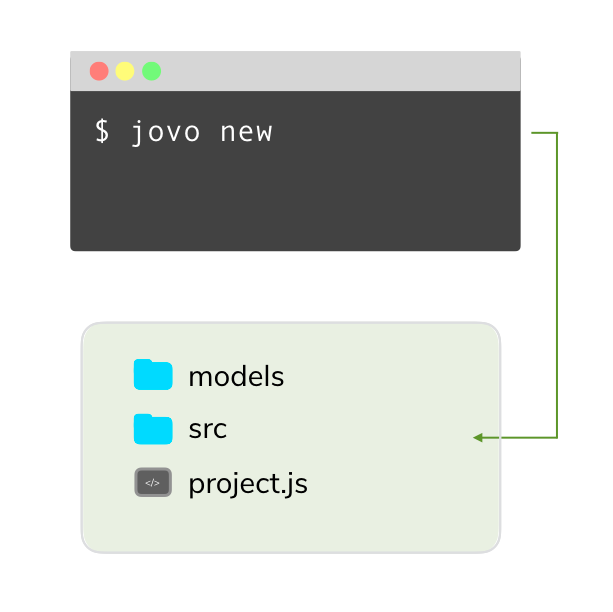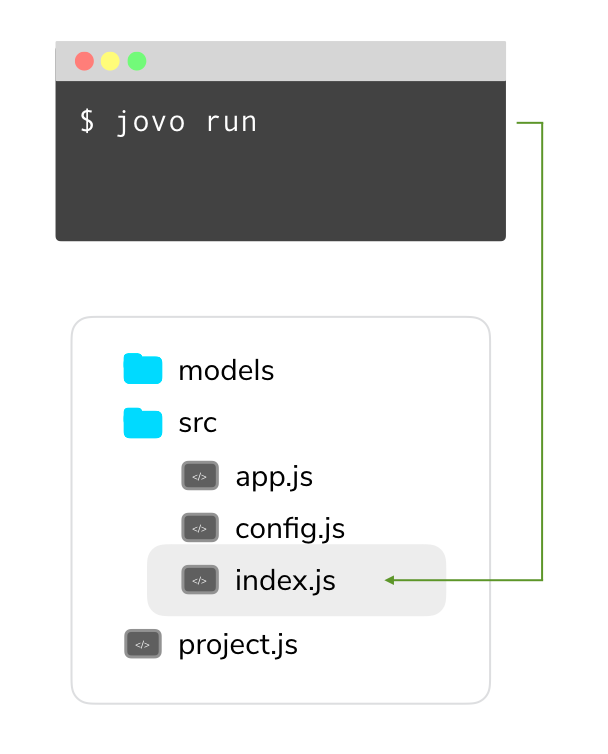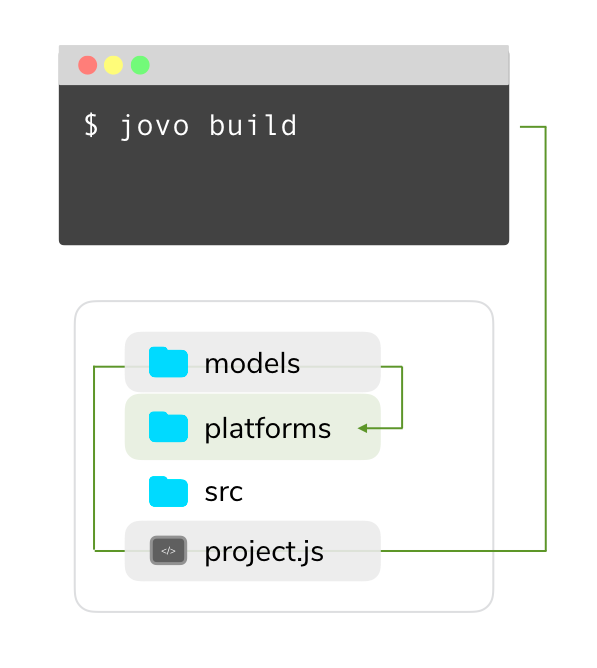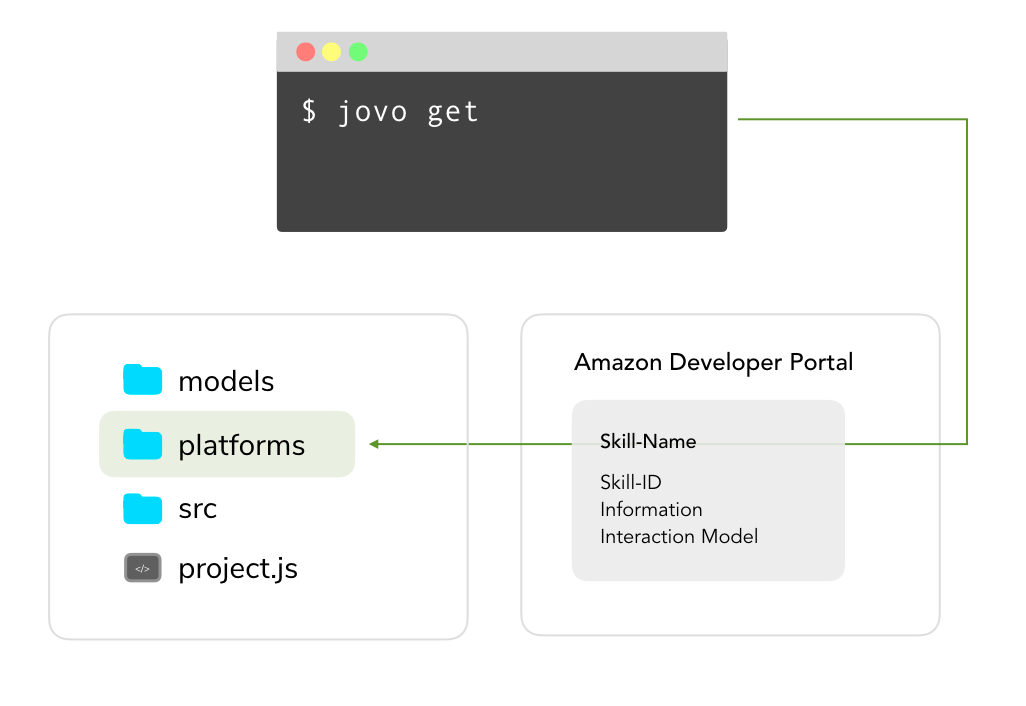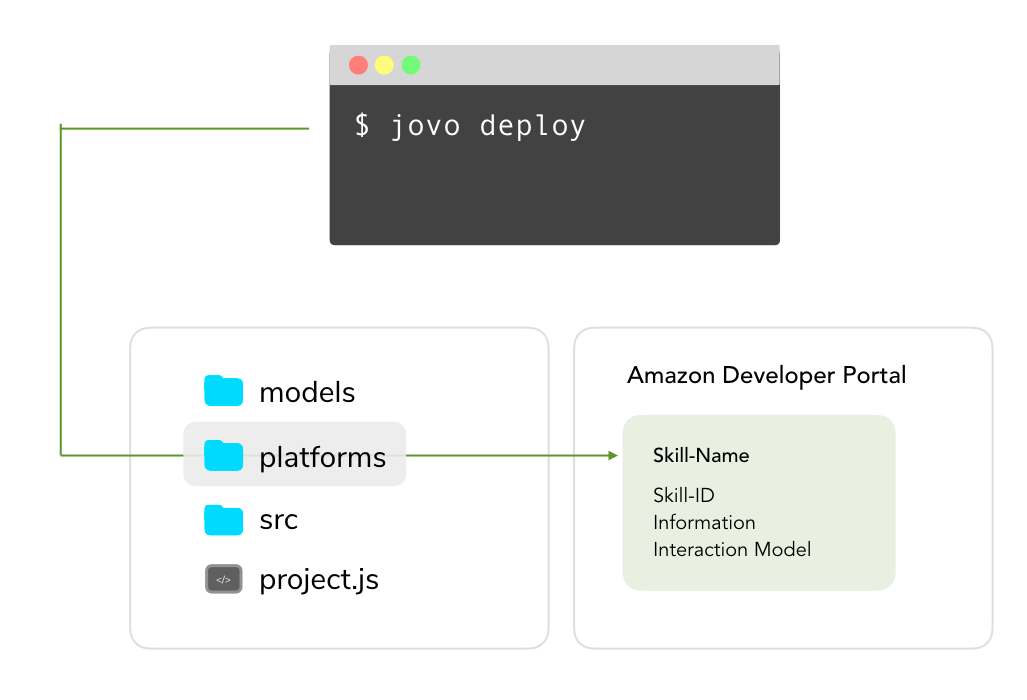The Jovo Command Line Tools offer the ability to create, prototype, test, and deploy your voice app quickly. Learn more about all the commands here.
The Jovo CLI (GitHub Repository: jovotech/jovo-cli) is the center of voice app development with the Jovo Framework. With it, you can quickly create new Jovo projects, create language models and deploy them to the voice platforms, and run your voice apps locally for easy prototyping and testing.
To make best use of the Jovo CLI, install it globally via npm:
$ npm install -g jovo-cliAfter successful installation, you should be able to see the jovo menu by just typing the following into your command line:
$ jovoYou can check the version number (and compare it to the jovo-cli npm package version) with this command:
$ jovo -VFind out more about technical requirements in our Installation Guide.
If you had the CLI installed with an outdated major version and are running into problems after updating it to the latest one, please try to uninstall it globally before you install it again:
$ npm uninstall -g jovo-cliIf you run into other problems, please submit an issue here: jovotech/jovo-cli. Thank you!
Jovo CLI commands can be divided into basic commands (to create and run projects) and platform commands (to interact with a voice platform).
| Command | Description | |
|---|---|---|
| Basic Commands | jovo new |
Creates a new Jovo project |
jovo run |
Runs a local development server (webhook) | |
jovo update |
Update all of the Jovo packages in your project | |
| Platform Commands | jovo build |
Builds platform-specific language model files into /platforms based on /models folder |
jovo get |
Downloads an existing platform project into the /platforms folder |
|
jovo deploy |
Deploys the /platforms project files to the voice platforms |
These are the basic commands that help you develop Jovo voice apps faster, without interacting with the voice platforms (see platform commands for features that are language model specific).
You can create a Jovo project into a new directory with the following command:
## Default
$ jovo new <directory>Learn more about this command here: cli/new.
You can use the jovo run command to start the development server in your index.js file, and then add the Jovo Webhook as an endpoint to the respective developer consoles.
Learn more here: Docs: Configuration > Hosting.
# Default
$ jovo runLearn more about this command here: cli/run.
To update to the latest minor version (updating either x or y in 2.x.y) of the framework, you can use the following command:
# Update all Jovo packages
$ jovo updateThis is are necessary (as opposed to $ npm install jovo-framework) because the framework is now split into different modules.
Platform commands are used to interact with the voice platforms (Amazon Alexa or Google Assistant/Dialogflow). You don't have to use these commands if you just want to maintain the language/interaction models on the respective developer platforms.
See the following tutorials for alternative ways to create language models on the respective developer platforms:
jovo build is the command to create and update the platform specific interaction models using the Jovo model. Using the files in the /models folder and converting them into files in the /platforms folder.
To learn more about Jovo Language Models, take a look at App Configuration > Models.
You can either run build separately for each platform, or just let the CLI fetch the right information from the project.js file.
# Default
$ jovo buildLearn more about this command here: cli/build.
jovo get will import an existing Alexa Skill (Skill Information and Interaction Model) or Dialogflow agent (work in progress) into the /platforms folder.
To get the Skill from the Amazon developer console, you have to set up ASK CLI first.
# Choose from list of Skills
$ jovo get <alexaSkill|googleAction>Learn more about this command here: cli/get.
jovo deploy is used to upload the platform folders to their respective developer consoles.
# Default
$ jovo deployLearn more about this command here: cli/deploy.
